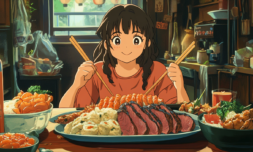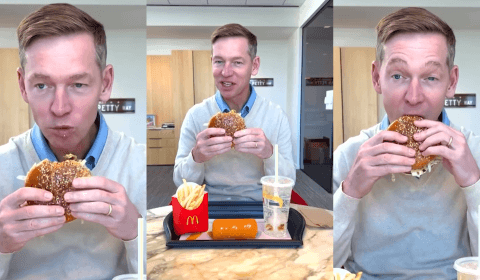Given the state of our world at present, why are content creators still going viral for making a show of mass-consumption and promoting throwaway culture when this is so blatantly in poor taste?
Sometimes, I genuinely think that most of us don’t give a rat’s arse about what’s going on in the world.
Even though we’re all well-aware of how intensely the planet and its people are suffering, the current social media landscape suggests that few are willing to wake up and do what’s necessary to confront it.
I say this due to how often I come across people wasting food when I’m scrolling; the platforms I frequent rife with videos of creators diving into spreads so big they could nourish entire families ten times over and the majority of which no doubt gets tossed in the trash (that’s if they don’t do it on camera).
With its roots in mukbang – which emerged in Korea during the 2010s and which was once confined to YouTube and streaming services like Twitch alone – this trend has risen to popularity so prolifically in recent years that short-form content making a show of mass-consumption is now widely considered the norm.
In less than a minute, we watch as these influencers proudly display the copious offerings before them, stuff their faces, and leave us wondering if they’ve actually managed to finish it all or, more likely, if they’ve thrown away what they can’t stomach.
This baffles me. Since when did it become acceptable to flaunt greed so inconsiderately?
Shein hauls are one thing, but given how many people go hungry on a daily basis – one in eleven to be exact – why on Earth are creators not only being permitted, but funded, to waste perfectly good food for clout?
‘It’s a flex on the hungry and the eco-conscious through conspicuous non-consumption,’ writes a reddit user.
‘These videos are like “Look at how much food I can afford to waste! Aw, you can’t spend hundreds of dollars on a burger with caviar spread, on a gold leaf encrusted bun, all drenched with canned nacho cheese? Sucks to be you. Hate clicks are still clicks, thanks for the engagement, sucker.’
Whether it’s rage-baiting or attention-grabbing doesn’t really matter, it’s in extremely poor taste and we need to call it out.




















